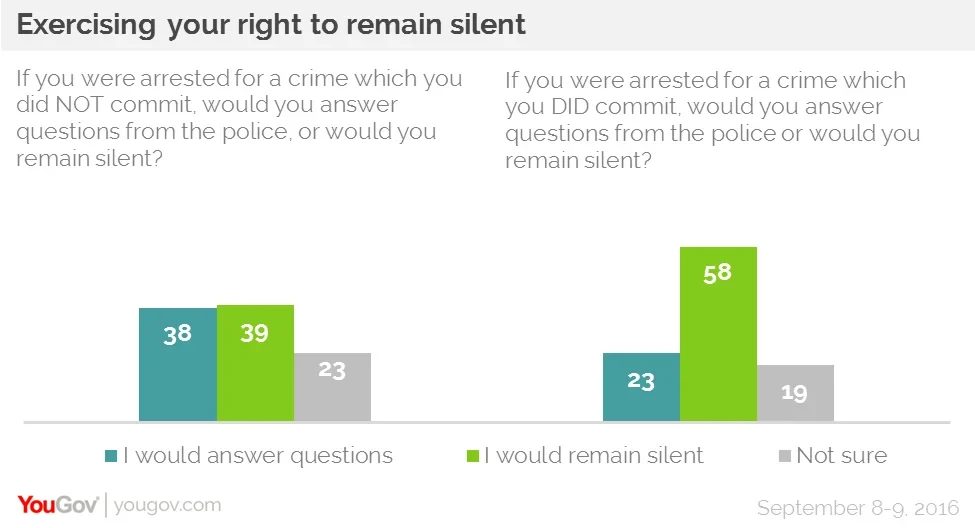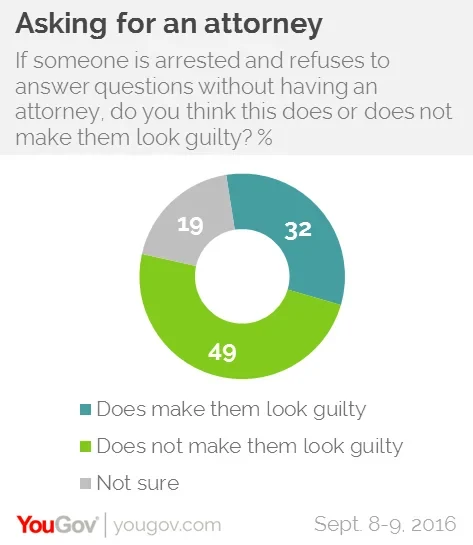Americans overwhelmingly view the rights to remain silent and to have an attorney as 'very important'
Americans enjoy a great many rights, from those explicitly spelled out in the Constitution to those which have emerged through the years. Few rights, however, are regarded as being so important that government officials must explicitly inform you of your rights before they may interact with you. For people under arrest, however, the rights to remain silent and to have an attorney are seen as so critical to personal freedom that police officers must inform someone of their rights before questioning them.
YouGov's research shows that Americans widely recognize the importance of these rights, with 66% saying that the right to remain silent is 'very important' and another 79% saying the same about the right to an attorney.
Whether an individual would exercise these rights depend largely on whether they did or did not commit the crime they are being arrested for and interrogated about. Most Americans (58%) say that they would shut their mouths if they did commit a crime and were being questioned about it, but there is a nearly even divide over whether they would be quiet if they were innocent. While 39% say that they would remain silent even though they are innocent, 38% say that they would answer questions from the police.


Despite this, only a third of Americans think that asking for an attorney before you answer questions - 'lawyering up' - makes someone look guilty. 49% of Americans say that asking for an attorney does not, in fact, make someone look guilty.
The actual mechanics of exercising this right may be complicated, however, as only 51% of Americans say that they would even know how to hire a lawyer if they were arrested.








